Shoppers limited to buying two bottles of milk at some Melbourne stores because of a dairy transport worker strike
Jacinta Allan has urged Victorians not to panic buy amid fears of a looming milk shortage, saying negotiations appear to be progressing after dairy workers went on strike.
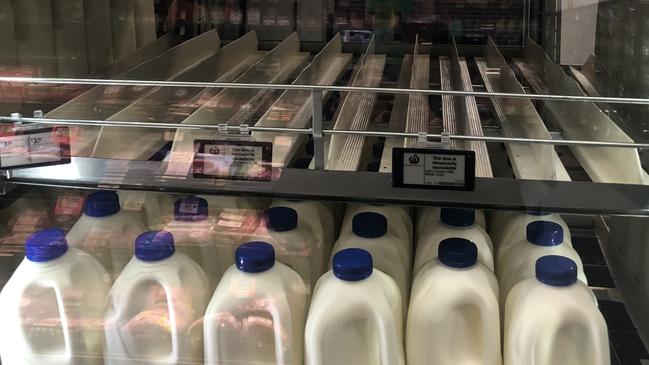
Victoria
Don't miss out on the headlines from Victoria. Followed categories will be added to My News.
Jacinta Allan says progress has been made in dairy strike negotiations after 1550 employees walked off the job in the fight for better pay.
However, speaking on Thursday, the Premier wouldn’t reveal details of the talks.
“I believe there has been some movement overnight on some of the negotiations between the parties,” she said.
“I’ll let them provide that update.”
The Premier urged each party to come to the table and negotiate, noting the strike was having wider community impacts as she warned Victorians against panic buying.
“I also advise that there doesn’t need to be any panic buying, that there is sufficient supply,” she said.
It comes after milk rationing began at some Victorian supermarkets and corner stores amid warnings of looming shortages.
Shoppers were limited to buying two bottles of milk at some Melbourne shops on Wednesday.
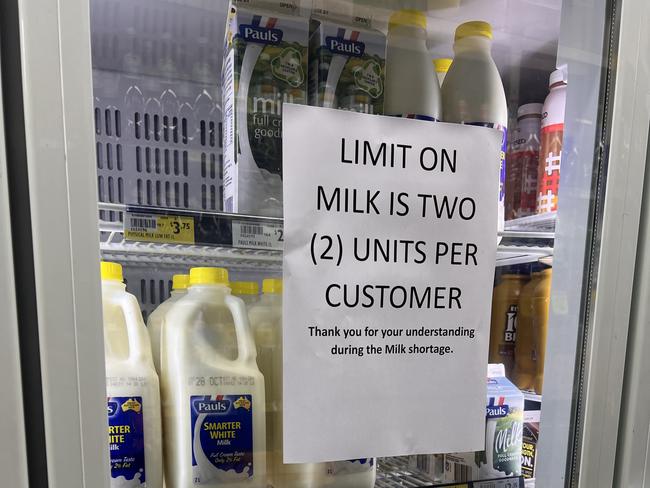
On Tuesday workers began a 48-hour strike and 1400 processing workers from four major dairy retailers – Fonterra, Saputo, Lactalis and Peters – began striking on Wednesday in the fight for better pay.
Retailers pleaded for calm, warning they do not want to see a panic buying crisis like what was seen during Covid, but angry workers have warned of a marathon industrial campaign.
IGA Murrumbeena was among the stores to begin rationing milk on Wednesday morning.
“We got absolutely slammed first thing in the morning,” owner Karen Meredith said.
“We had regular customers buying three bottles of two-litre milk at one time and I thought that’s not normal.
“We got caught out with the toilet paper thing in Covid so we thought it was reasonable to just put a limit on. We take care of our customers and a lot of people come buy their milk in the evenings so we have stepped in to try and keep milk for everyone.”
National Retail Association Deputy CEO Lindsay Carroll said: “The effects of the strikes have already spilled over into the retail sector with businesses putting up ‘out of dairy’ signs, and as frustration mounts around the shortages, we ask customers to remain calm and courteous when dealing with retail staff.”
Dairy Farmers Victoria executive officer Andrew Curtis said the strikes were also already taking their toll on producers with at least 10 “devastating” instances where farmers were forced to dump up to 10,000 litres of milk, worth around $8000.
“Our message to all customers is that we and the system will make sure you have enough milk for your Weeties and your lattes and your children,” Mr Curtis said.
“We have been assured there will continue to be milk supplied to the supermarkets and we have no reason to doubt that.”
October was the peak time for production so farmers didn’t have the capacity to hold milk during the industrial action but had been assured processors would pay losses.
A Woolworths spokesman said the company was monitoring the situation.
“We’re in close contact with our Victorian milk supplier and we’re working on contingency plans to minimise any potential disruption to our customers.”
A Coles spokesperson said it was not yet impacted and there would be milk available throughout the week.
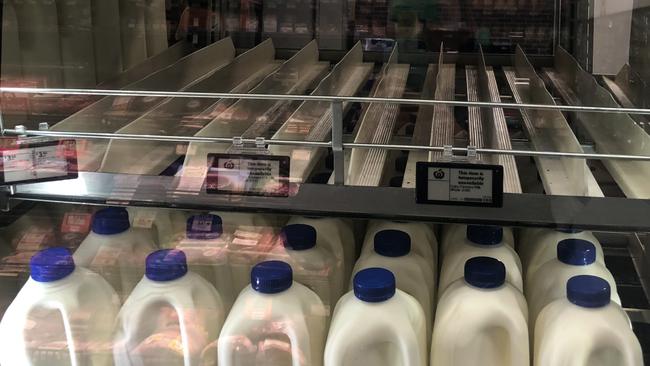
Dairy workers’ strike continues
On Wednesday, dairy workers rallied outside Peter’s Ice Cream in Mulgrave to strike over pay and conditions.
More than 50 workers picketed the Mulgrave offices, while 1400 employees from four major dairy retailers — Fonterra, Saputo, Lactalis and Peters — walked off the job for 48 hours, demanding a cost-of-living pay increase.
The workers across five Victorian sites owned by Saputo kicked off their 48 hours of industrial action at 3am on Tuesday.
Sites affected include Leongatha, Maffra, Rochester, Kiewa and Cobram.
Aussies are facing further price hikes for milk, cheese and yoghurt at the checkout if the strikes trigger shortages.
Leongatha-based Saputo factory worker Derek Dent said a wage increase of 3 to 4 per cent was not fair in a cost-of-living crisis.
“It’s about time we got a fair deal,” Mr Dent said.
Employees said they worked harder, faster and longer during the pandemic and beyond with annual pay increases amounting to as little as 2.5 per cent.
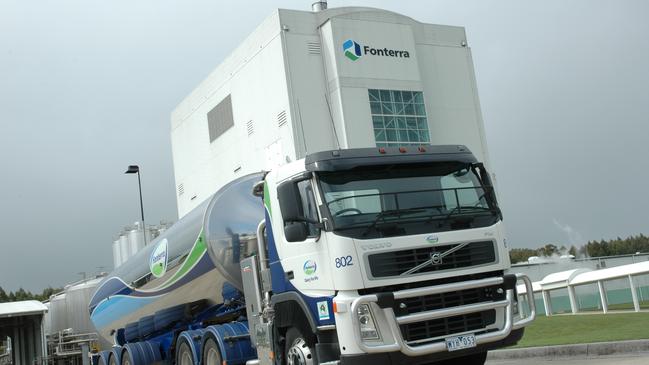
“I work with good people who make the job look easy, but it is not,” said Mr Dent.
“It’s loud. It’s hot. It’s hard work.
“It takes a special person to do shift work, to push your body and your mind to function at 3am when your body just wants to sleep.”
United Workers Union national secretary Tim Kennedy said this strike was about inequality.
“These workers are not even asking for a wage increase that keeps them ahead of the current inflation rate,” Mr Kennedy said.
“These workers are fighting for safe, secure jobs in regional communities, where almost every dollar they earn goes back into those communities.”
1400 dairy workers are on strike for the next 48 hours demanding a cost of living pay increase.
— Erin Constable (@erinec18) October 18, 2023
“These companies are multimillion dollar companies and we deserve our fair share said Secretary of the United Workers Union, Tim Kennedy Tim Kennedy. @theheraldsun pic.twitter.com/VxoWrNLxoP
More than 50 workers attended the Mulgrave demonstration armed with signs and loud chants.
A sausage sizzle helped to rally the crowd along with the constant car horns sounding from drivers along Wellington Road.
Chants of “five, five, five” could be heard from the crowd.
“A 5 per cent pay increase is the absolute minimum workers are asking for,” said Mr Kennedy.
Retailers warned lengthy disruptions from the strikes would be passed on to consumers, as the transport union threatened more industrial action if an agreement was not reached next week.
The Transport Workers Union is threatening further strike action after another failed round of talks with Australia’s top dairy processor Saputo.
As households cut back on some goods due to the cost of living crisis, dairy products have remained a staple purchase.
Ms Carroll said this meant smaller retailers were set to be the “worst affected by the supply chain disruptions”, because dairy meant guaranteed sales for shops who had seen their incomes fall.
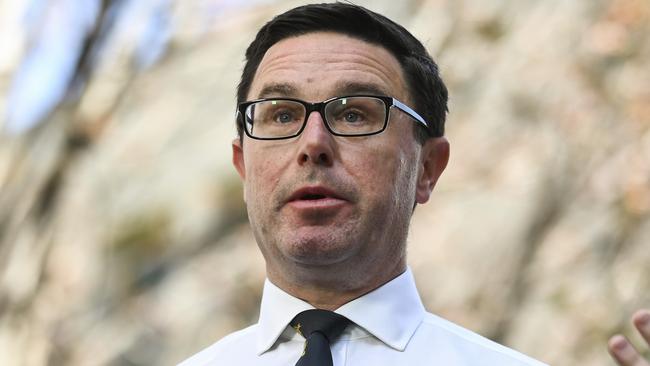
Opposition agriculture spokesman David Littleproud said dairy products were perishable and time-critical, so it was important that there was as little disruption as possible.
“Any industrial action needs to consider the impact on farmers and their product, which risks dairy shortages and could force prices up,” Mr Littleproud said.
The Transport Workers Union has acknowledged the action may impact the supply chain, as dairy will not be delivered from farms to the factories.
It said the action was due to “drawn out” and “unfair negotiations” with Saputo on pay and conditions with drivers now required to test milk quality, which was previously done in labs.
The action was meant to happen last Friday but was delayed when Saputo came back to the negotiating table.
However, the undisclosed pay increase offered was not enough and workers have now gone on strike.
Farmers are concerned that if the action extends beyond 48 hours they may be forced to pour milk down the drain.
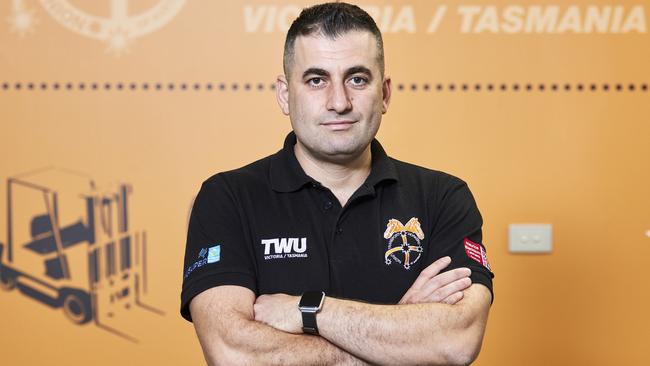
TWU Victorian branch spokesman Mem Suleyman said negotiations about pay, conditions and job security would continue next week.
Mr Suleyman said would not put a figure on how much drivers were asking for, but said they had not received a wage rise in over 12 months.
He said Saputo would not rule out further job cuts as a result of site closures.
“The people sitting on top of the supply chain, like the Aldis and the Saputos of the world, they hold the purse strings and what decision they make has an impact across the whole industry,” Mr Suleyman said.
“When you add the concern around job security, cost of living and wages it’s a pretty bad cocktail because people are being pressured to do more because they need to keep up.
“They are now working longer hours, there is a fatigue issue associated with that, and that is because they are being squeezed.”
Mr Suleyman said the 48-hour strike would continue on Wednesday, with more industrial action on the cards if its negotiations with Saputo were not resolved.
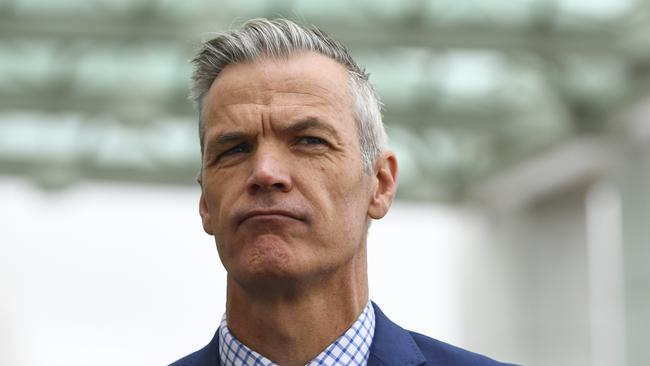
Victorian Farmers Federation President Emma Germano said it hoped the industrial action was settled as soon as possible.
But Ms Germano acknowledged a conversation needed to be had about the future of pivotal supply chains.
“It’s a balancing act, with farmers, processors, workers and the consumer all competing for a fair price that allows for a sustainable and viable dairy industry,” she said.
“We need to talk about how standover tactics have a different impact on fresh produce.
“The issue is more acute because the loss and spoilage has much wider economic and environmental outcomes.”
The dairy industry strikes come as MPs debate the Albanese government’s controversial workplace relations bill, which farmers warn will give union officials powers to enter farms unannounced.
National Farmers Federation CEO Tony Mahar said it was farmers that ended up footing the bill when they had nowhere to send their perishable products, even though they weren’t part of the negotiations.
“What we’re worried about with the government’s changes to workplace laws is that we’ll see more of this in the future, not less,” Mr Mahar said.
“With more union power comes more supply chain disruption, and a bigger hit to farmers who sit exposed at one end of that supply chain.
“The whole thing needs a rethink to take into account the needs of small businesses like family farms.”




